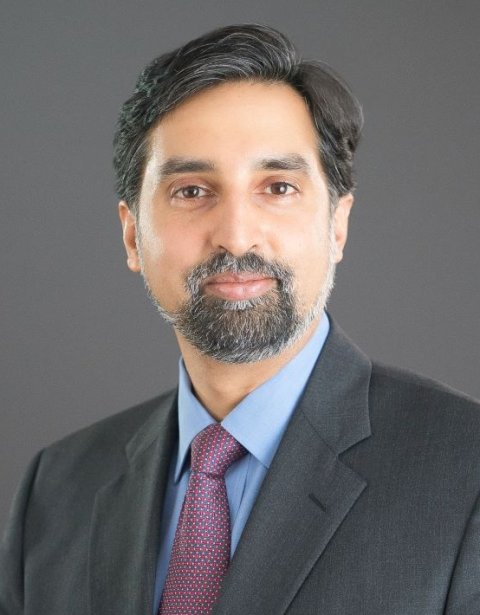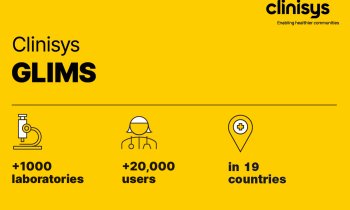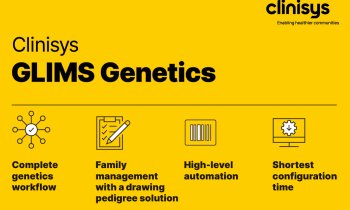Sponsored • Clinical evidence workflow solution
Fast-tracking research results into clinical practice
The path from evidence-based research to clinical implementation is straightforward in theory but taxing in practice: Research groups must be coordinated, relevant published material identified, classified, and prepared, to shape findings into a comprehensive SOP for clinical use. To facilitate this complex process, Wolters Kluwer developed a new suite of applications, called Ovid Synthesis. It streamlines research workflows and the implementation of quality improvement measures into clinical practice. We spoke with Vikram Savkar, Senior Vice President & General Manager, Medicine Segment, Health Learning, Research & Practice, about the new solution, its development, and unexpected benefits for clinical education and onboarding.

‘We want to facilitate the process of continuous quality improvement, which is highly relevant for any hospital,’ he says. ‘Applying the best practice is essential for better clinical outcomes for patients and also benefits financial performance. But it can also be very tedious and time-consuming. With Ovid Synthesis, we have developed a workflow tool that helps make that process efficient, successful, collaborative and more accurate.’
Coordination of research groups is an enormous challenge, especially in bigger institutions: teams are scattered and communication about ongoing projects often happens in parallel over emails, offline documents and spreadsheets. ‘This is inefficient and makes it hard to find the relevant evidence,’ Savkar says. ‘Findings are challenging to share across teams in other departments or hospitals. As a result, much time is wasted on research that has already been done before.’
To solve this, Ovid Synthesis offers a cloud-based space to conduct research activities, provides access to all relevant published evidence and ensures that all teams involved have visibility into current projects in a comprehensive dashboard. ‘The system also allows teams to track previous unsuccessful research projects to avoid duplication of efforts.’
AI classification streamlines search for sources
To accumulate relevant sources for research projects, the Synthesis solution is built upon the Ovid platform, which, according to Savkar, is the largest database of medical literature in the world. However, for teams searching for specific content, this wealth of information can be challenging to process: ‘Even the most accomplished and earnest researcher can’t possibly read all the articles that are published in a particular field,’ he says. ‘This is where our solution comes in – technology can help to make the selection and evaluation more efficient.’
To achieve this, Ovid Synthesis uses artificial intelligence (AI) to classify publications by their relevance. This is determined by scientific criteria, such as study design, sample size, or frequency of external citations. ‘If this were done manually, this classification alone may take up to an entire year, but our tools can reduce the process to a period of weeks.’
Not only does the system help pulling the relevant papers, but it also helps users extract their key insights and generates citation lists. ‘This process ensures that the template for any clinical improvement plan will be created in a rigorous, evidence-based way,’ Savkar stresses.
Unexpected benefits in education, onboarding, and job satisfaction
Originally intended as a tool to bring the latest evidence into clinical practice, the suite has also proven to be helpful in other, unexpected ways, Savkar reports: ‘We didn't build Ovid Synthesis as an educational or training tool. But the hospital systems we work with find that this is a very useful way to help residents and new doctors quickly assimilate to evidence-based practice culture in those hospitals. Because it is such a structured tool and it templatises the process of evidence-based practice, it helps teach them what that looks like.’
The process-oriented approach is also beneficial in creating greater job satisfaction for doctors and nurses, as user feedback shows: ‘They feel a sense of agency, that they can participate in a process to help improve clinical outcomes of their hospital. This is very meaningful for doctors and nurses, so it’s another by-product that we are thrilled about.’
Feedback loops fuel further development
We have worked closely with selected hospitals to make sure that all the innovation we put into this suite is driven by customer needs
Vikram Savkar
Ovid Synthesis launched in January 2022, after a two-year development phase. ‘We have worked closely with selected hospitals to make sure that all the innovation we put into this suite is driven by customer needs. We engaged many of our large hospital customers to help us design this so that it genuinely met their needs.’ Since the solution is cloud-based, it can be implemented into any pre-existing clinical IT infrastructure, says Savkar, adding that ‘cybersecurity is a top-level issue for us, so we implement the best practices to protect our customer’s data.’
Feedback loops are also to be a driver of the regular expansions to the suite, which are scheduled for release in six-month intervals; for example, a new institutional dashboard allowing users to identify and build on previously successful projects and automated integration with external research platforms. ‘So far, we have been very successful with this product; many major hospital systems adopted it on the first day it launched. The reason for this success is that we're choosing to take a steady customer-based path to building out the full solution over time.’ (WB)
Profile:
Vikram Savkar is the Senior Vice President and General Manager, Medicine Segment of the Health Learning, Research & Practice business at Wolters Kluwer. Previously, Mr Savkar served as General Manager for several businesses in the Legal & Regulatory division before joining the Health Division in late 2019. Prior to joining the company, he held senior positions at Nature Publishing Group and Pearson Education, and has earned degrees in Physics and Classics from Harvard University.
18.05.2022











